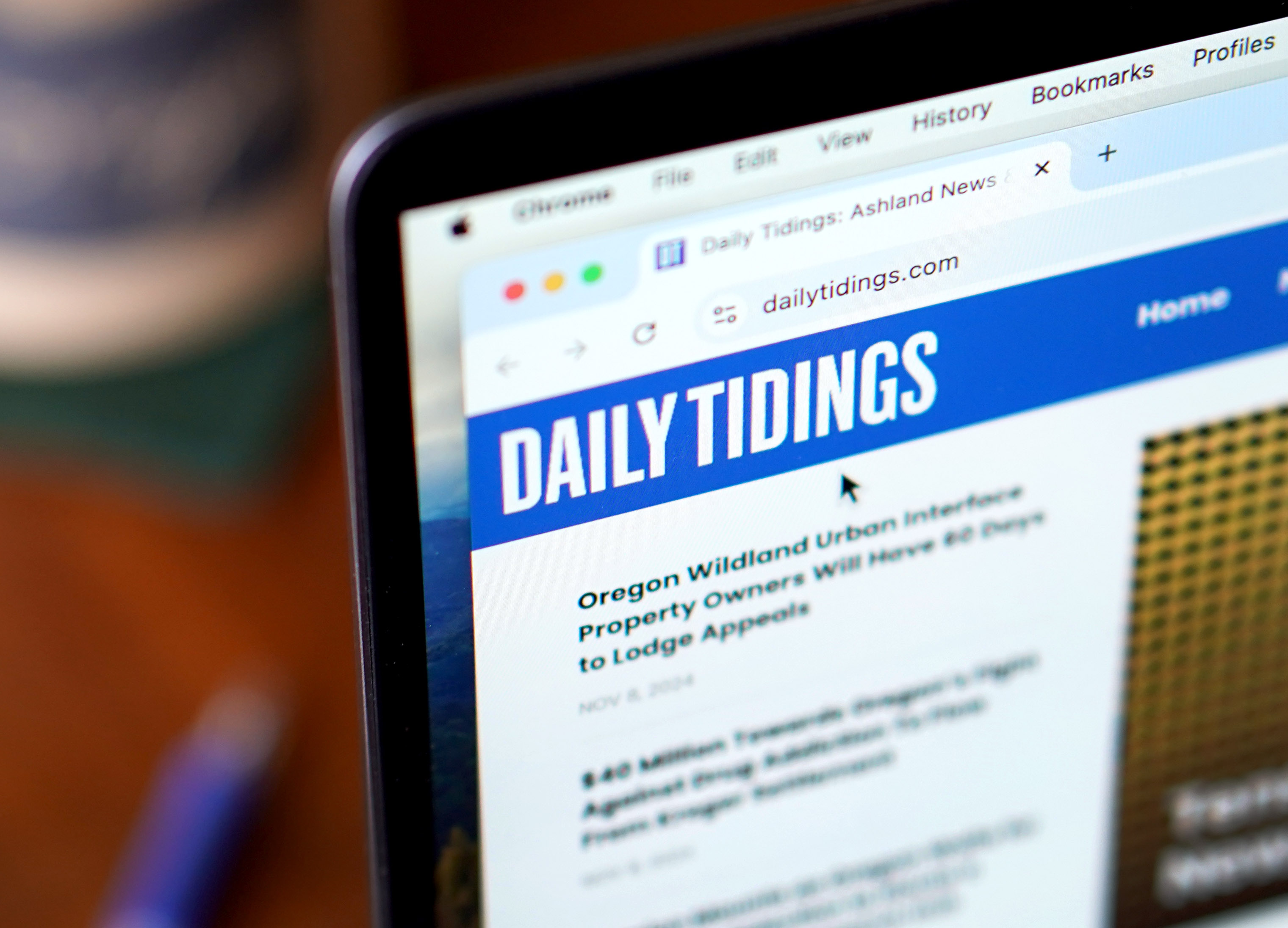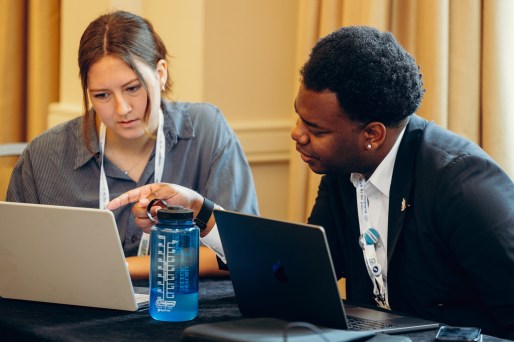Best Ways to Explore stnews.live on Mobile
The Significance of Fact-Checking worldwide of News Online
The frequency of false information in today's on-line news landscape has reached worrying degrees. Fact-checking companies play an essential duty in neutralizing this trend. They validate cases and improve the integrity of journalism. Nonetheless, the performance of these organizations often rests on their techniques and public perception. As target markets navigate this complex environment, the implications of their findings might shape the future of news consumption and depend on. What does this mean for the honesty of information relocating onward?

The Rise of Misinformation in the Digital Age
Just how has the advent of digital modern technology contributed to the spread of misinformation? The quick development of the web and social networks platforms has actually facilitated the dissemination of details at an unmatched pace. Customers can share articles, videos, and viewpoints with a plain click, frequently without confirming the web content's accuracy. Algorithms focus on mind-blowing or emotionally billed product, leading to an expansion of misleading narratives that capture interest.
Additionally, the privacy managed by electronic platforms permits people to spread false details without liability (stnews.live). Misinformation flourishes in resemble chambers, where customers are exposed mainly to perspectives that strengthen their ideas, better entrenching frauds. The saturation of details can overwhelm individuals, making it testing to discern qualified resources from unreliable ones. As a result, false information has actually become a prevalent concern in the digital landscape, affecting public point of view and rely on reputable news resources
The Function of Fact-Checking Organizations
Fact-checking companies play an essential role in improving the reputation of journalism by verifying cases made in news records. Their initiatives are vital in combating false information, guaranteeing that precise details prevails in the electronic landscape. By holding media outlets responsible, these companies add substantially to educated public discourse.
Enhancing Trustworthiness in Journalism
While false information multiplies in the digital age, fact-checking companies play an essential duty in enhancing the reliability of journalism. These organizations carefully validate insurance claims made in news short articles, public statements, and social media articles, making certain that info shared to the general public is exact and trustworthy. By providing independent analyses, they function as a crucial source for journalists, assisting them maintain high criteria of integrity. Furthermore, their efforts promote transparency in media, promoting public trust fund. As target markets come to be progressively discerning, the presence of respectable fact-checking entities can differentiate trustworthy news sources from those that might spread out frauds. Ultimately, the dedication of fact-checking organizations to copyright reliability is crucial for the health and wellness of democratic discussion.
Combating Misinformation Effectively
As misinformation continues to spread quickly across digital systems, the function of fact-checking companies becomes progressively critical in the battle for precise information. These companies function as guard dogs, scrutinizing cases made by public figures and media outlets to guarantee responsibility. By utilizing rigorous research approaches and specialist evaluation, they verify realities and make clear misleading narratives. Their searchings for are shared with various networks, informing the public and cultivating crucial reasoning. On top of that, partnerships with social media sites systems improve their reach, allowing for prompt flagging of incorrect info. As electronic literacy expands, the impact of fact-checking companies is vital in encouraging target markets to discern fact from falsehood, inevitably adding to a more informed society.
Exactly How False Information Affects Public Assumption
False information significantly undermines rely on media, leading audiences to wonder about the integrity of news resources. Consequently, people usually gravitate towards outlets that enhance their existing ideas, adding to the polarization of point of views. This dynamic creates a fragmented details landscape, where shared understanding becomes progressively challenging to accomplish.
Count on Media

Rely on media has become significantly vulnerable in the electronic age, where the rapid spread of false information can skew public perception. As false information proliferates throughout social media and on-line systems, audiences often locate it challenging to determine reliable resources from undependable ones. This uncertainty fosters uncertainty, leading many people to question the intentions behind news reporting. Trust fund in established media electrical outlets has lessened, as customers increasingly transform to different sources that may lack extensive editorial standards. This disintegration of trust fund not just influences individual ideas yet additionally undermines the collective ability to participate in educated conversations. Inevitably, the integrity of journalism is at risk, highlighting the crucial requirement for efficient fact-checking to bring back self-confidence in the media landscape.

Polarization of Viewpoints
The boosting skepticism toward typical media has added to an expanding polarization of point of views amongst the general public. False information, often shared with social media sites and online platforms, plays a significant function fit unique ideological splits. Individuals regularly choose details that straightens with their pre-existing ideas, enhancing their viewpoints while rejecting opposing point of views. This resemble chamber result escalates departments, resulting in a fragmented public discourse where agreement comes to be progressively evasive. In addition, sensationalized stories prosper in this environment, additionally skewing public understanding and fostering distrust in credible resources. As polarization rises, the necessity for reliable fact-checking comes to be paramount to bridge gaps and advertise notified conversations, eventually making certain a more cohesive society efficient in steering complicated issues.
Methods for Reliable Fact-Checking
Reliable fact-checking counts on an organized technique that includes complete research, confirmation of sources, and important evaluation of claims. A fundamental method is cross-referencing info from several legitimate sources to verify its accuracy. Fact-checkers frequently utilize specialized data sources and archives to trace the origin of specific declarations, ensuring that the reported info lines up with recorded evidence.
An additional crucial technique involves looking at the context in which claims are presented. Misleading info can emerge from out-of-context quotations or selective data usage. By analyzing the broader narrative, fact-checkers can identify possible biases or misconceptions.
Involving with specialists in relevant areas can give clarity and insight that boosts the fact-checking process. This cooperation can reveal nuances that laypeople may ignore - stnews.live. Ultimately, a regimented strategy combining these techniques cultivates a much more informed public, improving the dependability of information distributed in the electronic age
The Impact of Social Media Site on News Consumption
Exactly how has social media transformed the method people take in news? The introduction of platforms like Facebook, Twitter, and Instagram has notably modified news usage patterns. News is currently disseminated swiftly, enabling customers to access real-time updates and engage with web content with likes, shares, navigate here and comments. This immediacy has fostered a preference for bite-sized information, commonly at the expense of extensive evaluation.
Social media allows customized news feeds, where algorithms curate content based on customer preferences, creating echo chambers that might limit direct exposure to diverse point of views. The role of traditional news electrical outlets has actually decreased as individuals increasingly rely on peer referrals and trending topics. The trustworthiness of details is usually endangered, as sensationalism can eclipse factual reporting. In general, social networks has improved news intake, emphasizing rate and personalization while testing the requirements of journalistic stability.
Encouraging Audiences to Determine Reputable Resources

In addition, analyzing the authorship and business background of newspaper article can disclose potential biases. Cross-referencing details across several trusted electrical outlets additionally boosts the confirmation procedure. Using electronic devices, such as internet browser expansions that rank the integrity of internet sites, can likewise aid in recognizing credible information. By proactively engaging with these sources and cultivating a crucial mindset, audiences can much better equip themselves to recognize reputable news sources, eventually fostering a more enlightened society in the middle of the complexities these days's media atmosphere.
The Future of Journalism and Fact-Checking
As the media landscape progresses, the future of journalism and fact-checking deals with both challenges and possibilities. The rise of digital platforms has equalized info dissemination, enabling varied voices to emerge. This has actually likewise led to the spreading of misinformation, necessitating robust fact-checking devices. Reporters will significantly depend on technology, consisting of AI devices, to verify facts swiftly and effectively.
Partnership in between wire service and fact-checking entities is prepared for to enhance trustworthiness and openness. Audience involvement will certainly play an essential duty, as notified viewers become significant partners in recognizing trustworthy web content.
The need for liability and precision is most likely to grow, pressing reporters to copyright high criteria in their coverage. Inevitably, the future of journalism might pivot on its capability to adapt to technological improvements while preserving like it journalistic integrity, making certain that fact-checking remains a foundation of legitimate news.
Frequently Asked Questions
How Can I Report Misinformation I Run Into Online?
To report misinformation experienced online, individuals can make use of platform-specific reporting devices, offer clear evidence, and share the details with fact-checking organizations. Involving with neighborhood discussions can also assist raise understanding regarding the false information.
What Are Usual Signs of False Information in News Articles?
Usual indications of misinformation in newspaper article consist of sensational headlines, absence of legitimate resources, psychological language, inconsistent truths, and lack of writer qualifications. Visitors should critically assess material for these signs to recognize precision.
Exactly How Do Fact-Checkers Verify Sources?
Fact-checkers confirm resources by cross-referencing information with legitimate databases, speaking with professionals, and checking out the original context of insurance claims. They additionally examine the reliability of the sources, ensuring precise and reliable info for public consumption.
What Lawsuits Can Be Taken Against Misinformation?
Lawsuits versus false information may consist of vilification legal actions, cease-and-desist orders, and regulative penalties. Victims can prosecute via civil courts, while some jurisdictions enforce fines or permissions on systems distributing incorrect information.
Exist Apps for Fact-Checking News On-The-Go?
Numerous applications exist for fact-checking news on-the-go, consisting of Snopes, FactCheck.org, and PolitiFact. These applications aid customers confirm claims quickly, advertising educated decision-making and promoting an extra critical method to consuming news in real-time.